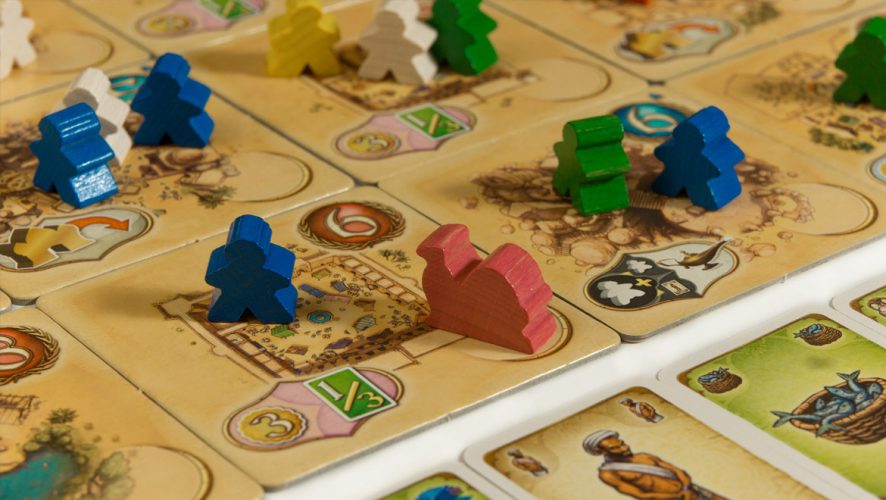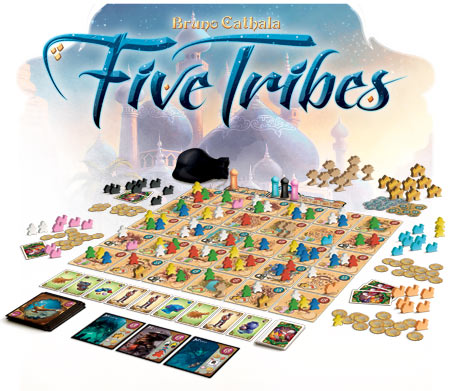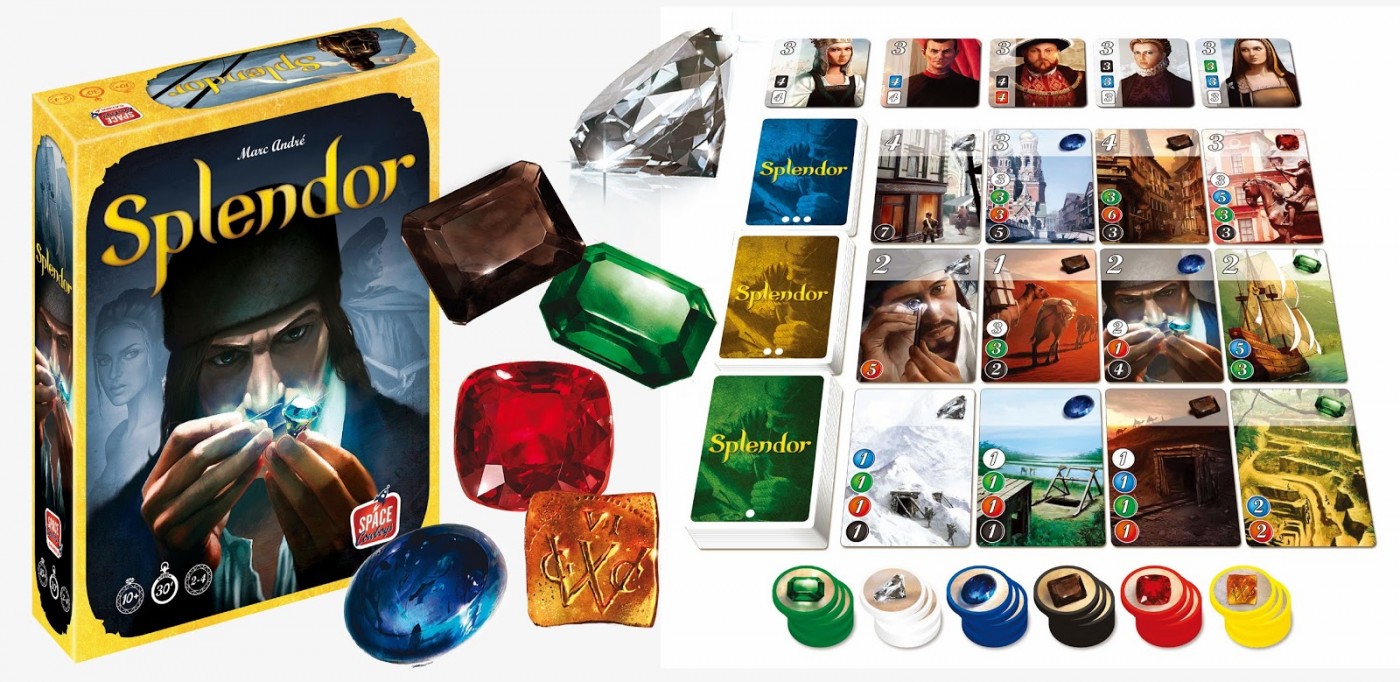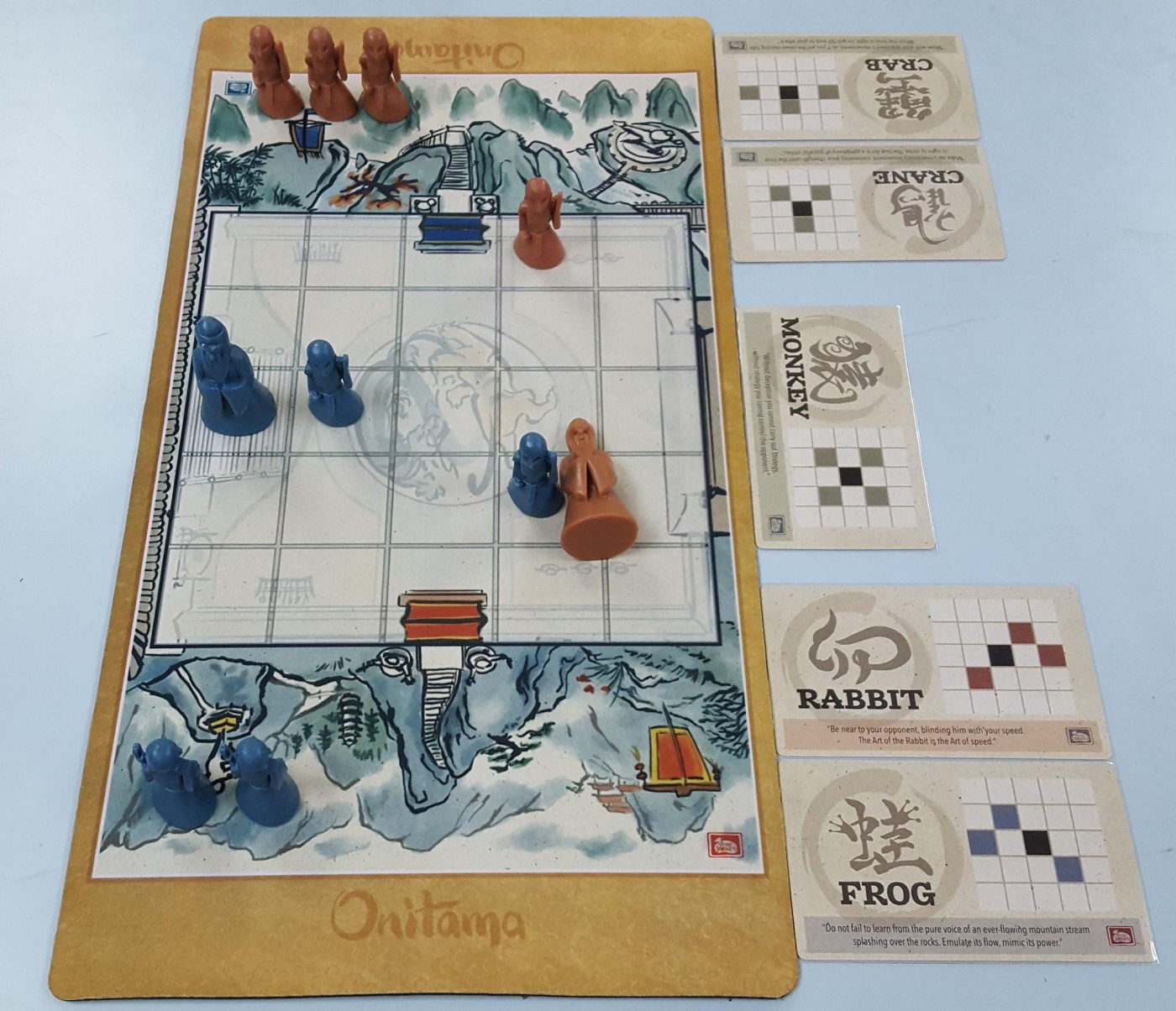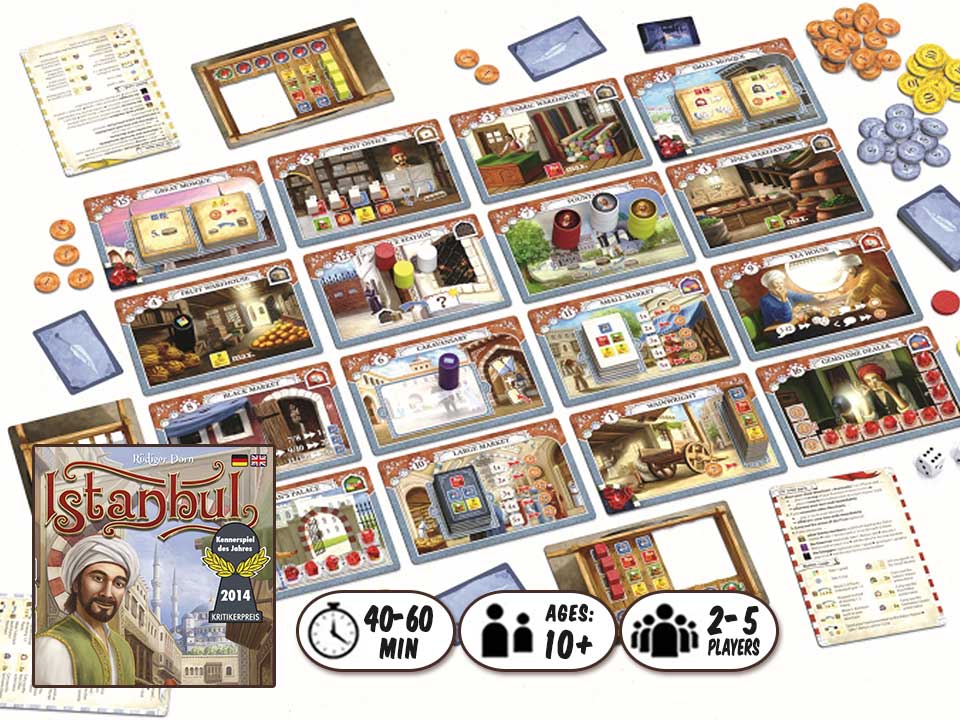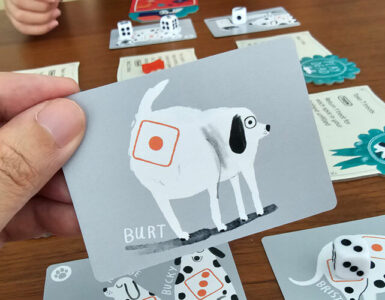When you think of playing board games in a group, it’s likely to be a boisterous affair with plenty of laughter, interaction and fun. But what if I told you that real serious board gaming action takes place in complete silence, thanks to the cerebral nature of some games, where your time is best spent on strategizing and less socialising?
These games are deep and are often won by the more skilled player. If that or playing boardgames in a library sounds good to you then to these games, you must say: ”Welcome silence, my old friend”.
Five Tribes
Five Tribes by Days of Wonder is a game of the Tales of Arabian Nights with Genies, Viziers and so on but the selling point of it and these other games is their strategic gameplay, not their themes. The game plays up to 4 players and is simple, you pick up, however, many meeples (that small person-shaped figure used as your player’s token) are on a tile and you must move that many spaces dropping one meeple on each tile you pass without going back on tiles you passed before.
When you place the last meeple on a tile, you get the benefit of that tile and the colour of meeple you last placed. For example, if the last meeple you placed was on a market tile and was a red meeple, you will first collect all the red meeples on that tile, then buy something from the market after which you would use the red assassin’s ability to kill a meeple on the board or a player owns. Also, if you remove all meeples on a tile, you claim it as your own with your camel.
This all sounds simple and it is but the consequences of every move is deep as every move you make either sets up or hinders your opponents and the puzzle changes after every player’s move.
Thus the word heard most during Five Tribes is usually a long “hmmm”.
Splendor
Splendor is one of those games which you do not hear much about but if you attended boardgame meetups in the last year, you probably have seen Splendor being played at some point. This is because it is easy to learn, plays fast and is highly strategic for such a short game. In a turn, you basically collect gems or purchase/build cards. The built cards either produce a gem of a certain type or are worth a certain number of points. You keep doing this till one person reaches 15 points and then after everyone has had equal turns. The round ends and the person with the most points wins the game.
The game is one for silent thinkers because the end condition is dependent on player actions. Do you target the cheap mines for massive production later on or get early mines that already have points on them. Also, the information on built cards are open to all, so you can actively take steps to take cards your opponent needs though this comes at a cost to your production line. A highly versatile game that fits a large spectrum of gamers and is definitely worth a try.
Onitama
There are many abstract games and many of them are played in silence like Chess due to the perfect information aspect of such games.
The unique thing about Onitama by Arcane Wonders for 2 players is its simple rules, short play time and a presentation that looks fun/cute enough that most people are willing to give it a try.
The rules are that out of 16 cards, only 5 are used per game. Each player gets 2 cards and when a player uses a move, he then proceeds to take the move that is available to be collected in the middle of the board to the right. Whoever takes an enemy master or get their master to the opponents shrine space wins. The limited moves per game make it a strategic challenge. Great as a 2 player game for both advanced gamers and as an introduction to new players. A must add to any collection if constant thought is something you like in a game.
Istanbul
Istanbul sees you as a merchant house trying to become the richest in the land. Not the most unique of themes but that is not the reason you will play Istanbul. You start the game with all your assistants together and during your turn, you can move 1 or 2 tiles and where you choose to land you have to drop off one of your assistants and then you get to do the action on that tile. It is that simple.
If you want to move into a spot with another merchant, you have to pay that player 2 coins. This and a modular board makes the game an ever-changing puzzle from game to game. For example, do you go for a sure thing like buying gems directly or do you try taking risks by rolling the dice? It’s a game that doesn’t take very long to play yet gives the feeling that skill has triumphed over luck.
Terra Mystica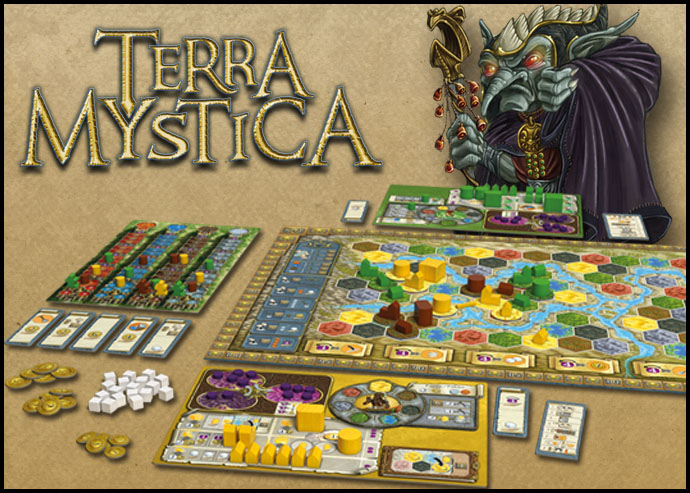
When I first started board gaming seriously in Singapore around 2011-2012, the first big Euro (strategy focused games) game that I often heard about was Terra Mystica and to this day I still see it getting played quite often in 2016. It is the most complex game in this article and there is too much to even explain how the game works in summary. Simply put you are terraforming the land to your races favoured terrain and trying to populate the world with your people by using magic and so on. The person with the most points wins. It is the many different core mechanics that makes the game. Gameplay is a very tight and one mistake could set you back turns of work. You’re often thinking so hard that social chatter tends to take a backseat.
For a Euro game, the interaction in the game is actually decent. There are benefits to being next to other players or you could just to block their expansion. The game is colourful, has a tonne of strategic depth and has multiple ways to play the game with double sided player board, each side with a different race. If you don’t mind the calm of silence for 2-3 hours as you stress over the most efficient way to earn more points, then welcome to Terra Mystica.
Akaisamurai is a cash-starved ronin of the nerd hobby whose moral inspirations are in order of Superman, Captain America and All Might. He also frequently finds himself playing boardgames, wargames, painting miniatures, reading about History and Philosophy and making Youtube videos on all of the above. Also, he has made it known that he is currently looking for 6 other samurai to defend a small village in rural Japan from Bandits.

